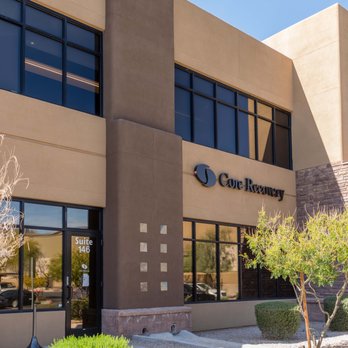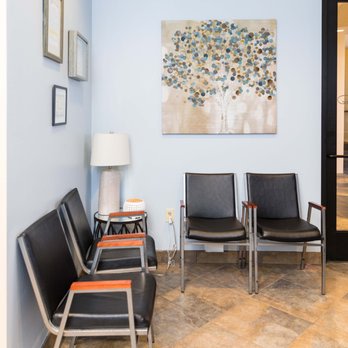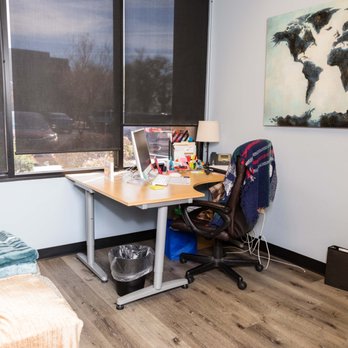






Core Recovery Phoenix
Treatment Focus
This center treats substance use disorders and co-occurring mental health conditions. Your treatment plan addresses each condition at once with personalized, compassionate care for comprehensive healing.
Primary Level of Care
Outpatient treatment offers flexible therapeutic and medical care without the need to stay overnight in a hospital or inpatient facility. Some centers off intensive outpatient program (IOP), which falls between inpatient care and traditional outpatient service.
Claimed
Recovery.com has connected directly with this treatment provider to validate the information in their profile.
Treatment Focus
This center treats substance use disorders and co-occurring mental health conditions. Your treatment plan addresses each condition at once with personalized, compassionate care for comprehensive healing.
Primary Level of Care
Outpatient treatment offers flexible therapeutic and medical care without the need to stay overnight in a hospital or inpatient facility. Some centers off intensive outpatient program (IOP), which falls between inpatient care and traditional outpatient service.
Provider's Policy
We accept major insurance policies and offer reasonable cash pay options for those without insurance or without out-of-network benefits. During your initial admissions call, we will be able to work with you directly on processing your treatment through your insurance or creating a viable cash pay schedule that meets your needs.
Core Recovery Phoenix
Core Recovery Phoenix
About Core Recovery Phoenix
Treatment Services
Those seeking treatment at Core Recovery will receive an initial diagnostic examination, which will determine a tailored treatment plan for each patient based on their personal needs and goals. The partial hospitalization program (PHP) is their highest level of care, which can provide a similar benefit and treatment as residential care without requiring overnight stays. Participants will commit 20 hours per week to their treatment and recovery plan, which can involve group, individual, or family therapy sessions. The Core also offers mental health and addiction education, creative expression and art therapy, medication management, and skill-building practice groups led by their team of experienced and certified mental health experts. The intensive outpatient program (IOP) at Core Recovery is a group therapy oriented program that can also include weekly individual and family therapy sessions with one of their master's level clinicians. Their intensive outpatient program is similar to partial hospitalization but needs less time and commitment, ranging from 9 to 19 hours per week depending on individual care plans. To treat the underlying trauma or mental health disorders that can lead to addiction, Core Recovery incorporates a holistic treatment approach that includes evidence-based methods such as cognitive behavioral therapy (CBT), eye movement desensitization and reprocessing (EMDR), motivational interviewing (MI), and mindfulness-based cognitive therapy (MBCT).
Adolescent Intensive Outpatient
Core Recovery’s adolescent intensive outpatient program (IOP) provides treatment and support to those struggling with depression, anxiety, or other mental health and addiction-related conditions for teens between the ages of 13-17 and their families. Evidence-based treatment strategies such as dialectical behavior therapy (DBT) are used to incorporate mindfulness skills for those struggling with mood, depression, anxiety, addictive behaviors, impulse control, and personality disorders by helping to identify the impact thoughts and feelings can have on one's life. Other methods may include relaxation and visualization techniques, encouragement and support of positive beliefs, and medication management if needed. The creative expression group promotes creativity and self-exploration through art, while the weekly family therapy sessions focus on strengthening family relationships through mental health and addiction education and gaining connections to resources and support with-in the community.
Specialized Programs
Core Recovery also offers other specialized services within their partial hospitalization and intensive outpatient programs. Their 8-week grief and loss program provides interactive activities and discussions focusing on ways to cope through the grief process and reach acceptance. Their trauma-informed therapy program can guide individuals through traumatic events or transitions with the use of therapies like eye movement desensitization and reprocessing (EMDR). Family and couples counseling uses an interactive approach, implementing positive ways to communicate and continue building healthy relationships. Clinicians experienced in treating love addiction, sex or pornography addiction, and codependency issues are on staff to facilitate individualized treatment plans in a confidential setting both virtually and in person.

Center Overview
Treatment Focus
This center treats substance use disorders and co-occurring mental health conditions. Your treatment plan addresses each condition at once with personalized, compassionate care for comprehensive healing.
Joint Commission Accredited
The Joint Commission accreditation is a voluntary, objective process that evaluates and accredits healthcare organizations (like treatment centers) based on performance standards designed to improve quality and safety for patients. To be accredited means the treatment center has been found to meet the Commission's standards for quality and safety in patient care.
Insurance Accepted
Cash Pay Rates
Estimated Cash Pay Rate
Center pricing can vary based on program and length of stay. Contact the center for more information. Recovery.com strives for price transparency so you can make an informed decision.
Levels of Care








Your Care Options
Specializations
Co-Occurring Disorders
A person with multiple mental health diagnoses, such as addiction and depression, has co-occurring disorders also called dual diagnosis.
Adolescents
Teens receive the treatment they need for mental health disorders and addiction, with the added support of educational and vocational services.
Who We Treat
Veterans
Patients who completed active military duty receive specialized treatment focused on trauma, grief, loss, and finding a new work-life balance.
Men and Women
Men and women attend treatment for addiction in a co-ed setting, going to therapy groups together to share experiences, struggles, and successes.
Young Adults
Emerging adults ages 18-25 receive treatment catered to the unique challenges of early adulthood, like college, risky behaviors, and vocational struggles.
Adolescents
Teens receive the treatment they need for mental health disorders and addiction, with the added support of educational and vocational services.
Midlife Adults
For adults ages 40+, treatment shifts to focus on the unique challenges, blocks, and risk factors of their age group, and unites peers in a similar community.
Older Adults
Addiction and mental health treatment caters to adults 55+ and the age-specific challenges that can come with recovery, wellness, and overall happiness.
Approaches
Personalized Treatment
The specific needs, histories, and conditions of individual patients receive personalized, highly relevant care throughout their recovery journey.
Holistic
A non-medicinal, wellness-focused approach that aims to align the mind, body, and spirit for deep and lasting healing.
Evidence-Based
A combination of scientifically rooted therapies and treatments make up evidence-based care, defined by their measured and proven results.
Family Involvement
Providers involve family in the treatment of their loved one through family therapy, visits, or both–because addiction is a family disease.
Individual Treatment
Individual care meets the needs of each patient, using personalized treatment to provide them the most relevant care and greatest chance of success.
Therapies
1-on-1 Counseling
Patient and therapist meet 1-on-1 to work through difficult emotions and behavioral challenges in a personal, private setting.
Family Therapy
Family therapy addresses group dynamics within a family system, with a focus on improving communication and interrupting unhealthy relationship patterns.
Psychoeducation
This method combines treatment with education, teaching patients about different paths toward recovery. This empowers them to make more effective decisions.
Trauma-Specific Therapy
This form of talk therapy addresses any childhood trauma at the root of a patient's current diagnosis.
Mindfulness-Based Cognitive Therapy
MBCT combines mindfulness practices—like meditation—with cognitive therapy techniques to help patients work through negative thought patterns.
Eye Movement Therapy (EMDR)
Lateral, guided eye movements help reduce the emotional reactions of retelling and reprocessing trauma, allowing intense feelings to dissipate.
Conditions We Treat
Post Traumatic Stress Disorder
PTSD is a long-term mental health issue caused by a disturbing event or events. Symptoms include anxiety, dissociation, flashbacks, and intrusive thoughts.
Anxiety
Anxiety is a common mental health condition that can include excessive worry, panic attacks, physical tension, and increased blood pressure.
Grief and Loss
Grief is a natural reaction to loss, but severe grief can interfere with your ability to function. You can get treatment for this condition.
Depression
Symptoms of depression may include fatigue, a sense of numbness, and loss of interest in activities. This condition can range from mild to severe.
Codependency
Codependency is a pattern of emotional dependence and controlling behavior. It's most common among people with addicted loved ones.
Suicidality
With suicidality, a person fantasizes about suicide, or makes a plan to carry it out. This is a serious mental health symptom.
Obsessive Compulsive Disorder (OCD)
OCD is characterized by intrusive and distressing thoughts that drive repetitive behaviors. This pattern disrupts daily life and relationships.
Pornography Addiction
A person with a porn addiction is emotionally dependent on pornography to the point that it interferes with their daily life and relationships.
Internet Addiction
Internet addiction is common among children teens. This compulsive disorder can damage relationships, school performance, sleep habits, and physical health.
Substances We Treat
Cocaine
Cocaine is a stimulant with euphoric effects. Agitation, muscle ticks, psychosis, and heart issues are common symptoms of cocaine abuse.
Benzodiazepines
Benzodiazepines are prescribed to treat anxiety and sleep issues. They are highly habit forming, and their abuse can cause mood changes and poor judgement.
Co-Occurring Disorders
A person with multiple mental health diagnoses, such as addiction and depression, has co-occurring disorders also called dual diagnosis.
Drug Addiction
Drug addiction is the excessive and repetitive use of substances, despite harmful consequences to a person's life, health, and relationships.
Chronic Relapse
Consistent relapse occurs repeatedly, after partial recovery from addiction. This condition requires long-term treatment.
Heroin
Heroin is a highly addictive and illegal opioid. It can cause insomnia, collapsed veins, heart issues, and additional mental health issues.
Opioids
Opioids produce pain-relief and euphoria, which can lead to addiction. This class of drugs includes prescribed medication and the illegal drug heroin.
Languages
Care Designed for Your Needs
Special Considerations
Couples program
Using gentle clinical care, therapists guide patients and their partner through guided sessions to address issues and work towards lasting solutions.






